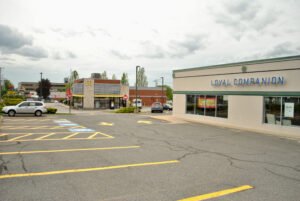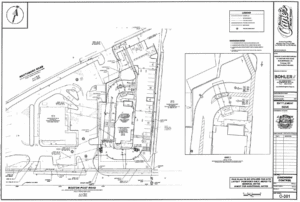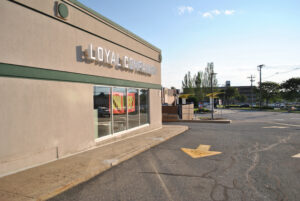
MARLBOROUGH – A proposed Raising Cane’s location in Marlborough is the subject of a state land court case as the City Council faces an appeal of its approval of a special permit for Raising Cane’s, court documents show.
This marks the latest development in a process that has seen representatives of a nearby McDonald’s express concern about the impacts that Raising Cane’s vehicle traffic would have on their location.
“The City Council’s decision to grant the Special Permit to Raising Cane’s was issued in excess of the City Council’s authority; is unsupported by the evidence, legally untenable, contrary to law, whimsical, arbitrary and capricious; and/or was otherwise unlawful,” attorneys for McDonalds wrote their complaint, which was filed on Oct. 5.
That complaint goes on to argue that traffic, vehicle circulation, and issues with both safety and parking “conflict with public health, safety, convenience and welfare and will be detrimental or offensive to traffic in the vicinity of the Project and to the operation of the McDonald’s restaurant.”
Special permit moves through process
Raising Cane’s applied for a special permit earlier this year to construct a restaurant with two drive-through lanes at 141 Boston Post Road West.
McDonald’s borders that location, with a restaurant at 155 Boston Post Road.
McDonald’s attorneys contend that all traffic to Raising Cane’s must enter and exit by passing over McDonald’s driveways.
The restaurant, they said, hired two outside firms to “evaluate the potential impacts” of this proposal.
“McDonald’s has significant concerns regarding potential traffic impacts, on-site vehicle circulation, safety and parking which have not been addressed by Raising Cane’s which could affect McDonald’s,” Kenneth Cram, who is the Director of Traffic Engineering at Bayside Engineering, then wrote in a letter to City Council in July.

At that time, Cram asked the council to require Raising Cane’s to conduct a traffic impact and access study and review the site circulation.
A consultant hired by Raising Cane’s presented a traffic assessment memorandum, that same month.
“Overall, our review indicates that the project would not have a noticeable or significant impact on the operations of the driveway or the adjacent McDonald’s,” Jason Adams of McMahon Associates said as he made that presentation.
McDonald’s lawyers said in their complaint, though, that Raising Cane’s traffic assessment memorandum didn’t address the impact of generated traffic on nearby intersections and on-site circulation.
McDonald’s proposes conditions for special permit approval
McDonald’s had requested five conditions on Raising Cane’s special permit if the City Council’s Urban Affairs Committee was to send that permit to the full City Council.
Those included asking for vehicles to merge into a single lane before exiting the drive-through.

McDonald’s also asked that Raising Cane’s install either a yield or stop sign at the exit from their drive-through to give vehicles entering the site from Boston Post Road the right of way.
A Raising Cane’s attorney told the subcommittee that they were willing to incorporate those modifications.
However, they were unwilling to incorporate McDonald’s three other requests, which called for one-way traffic circulation, angled parking spaces and signs telling exiting vehicles to turn onto Northboro Road instead of driving around the McDonald’s location.
City Council approves special permit
Marlborough’s Urban Affairs Subcommittee recommended that the City Council approve Raising Cane’s special permit application in August.
“We have had several discussions with that operator, and we have done our best to address those concerns, to speak to the concerns they have,” Raising Canes’ attorney Michael Brangwynne said of conversations with McDonald’s representatives at that time.
The City Council then approved the special permit on Sept. 13 via a 10-1 vote. Councilor Mark Oram voted “no” after McDonald’s wrote a letter opposing the permit over concerns about traffic flow and safety.
Oram suggested referring the permit back to the Urban Affairs Subcommittee, which he said should meet with the two parties.
Councilor Kathleen Robey, who is the Urban Affairs Subcommittee chair, said that, while McDonald’s concerns could be valid, they were unrelated to the issue of the special permit.
“I think that there will be an opportunity for some discussion at the site plan to talk about the letter, but I do not feel that any of their concerns were appropriate for the actual special permit document,” Robey said.
Case management conference delayed
Parties in this appeal filed a joint motion earlier this month to delay a scheduled case management conference due to “preliminary discussions concerning the parameters of a potential settlement.”
A case management conference is now scheduled for Friday, Dec. 17.











